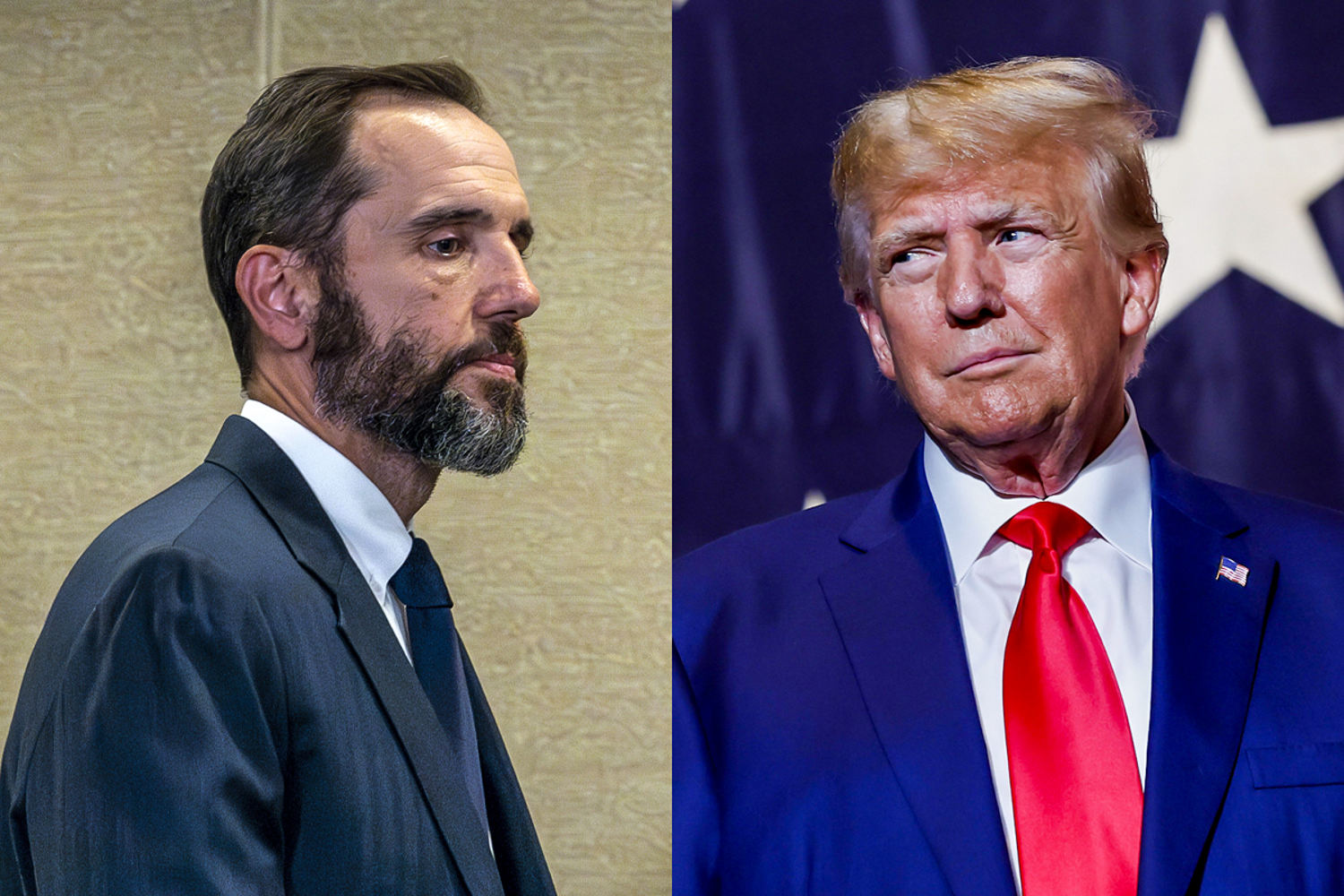
U.S. District Judge Tanya Chutkan is about to wade into uncharted legal waters, deciding which of Donald Trump’s alleged election subversion crimes are official acts of an American president and hence at least presumptively immune from prosecution. The Supreme Court directed Chutkan to undertake this unprecedented litigation by creating out of whole cloth a doctrine of criminal immunity for a president’s “official acts.” On Tuesday, Trump’s lawyers made a last-ditch attempt to prevent this maiden legal voyage from setting sail. On Wednesday, that attempt backfired, as a brief from special counsel Jack Smith’s team with new evidence was made public.
To comply with the Supreme Court’s command, Chutkan needs to see all the evidence of Trump’s conduct on and around Jan. 6, 2021. Last week, Smith filed the lengthy motion, which laid out Trump’s conduct as the basis of the four charges in his criminal indictment. There is also an even lengthier appendix providing the evidence (e.g., grand jury transcripts, FBI write-ups of witness interviews and the like) supporting the narrative laid out in the motion.
Smith has “changed” his position because the circumstances have changed.
Smith redacted any information from his court filing that would compromise ongoing investigations or reveal sensitive or classified information. Chutkan then set two deadlines for Trump’s lawyers: Oct. 1 to object to redactions in the motion, and Oct. 10 to object to redactions in the appendix materials.
The first filing, objecting to the motion’s redactions, landed Tuesday, and it was absurd in the extreme. The document’s tone was less a sober legal argument than an unhinged, 2 a.m. social media post (saying, for example, Smith’s filing is a “politically motivated manifesto to the public”). It made three primary arguments as to why Smith got the redactions all wrong and begged Chutkan not to release anything in advance of the November election.
Trump’s first argument was that Smith’s positions have been inconsistent over time. Earlier in this case, Smith argued that the evidence should not be disclosed publicly earlier than necessary. Now, Trump’s lawyers contended, Smith was newly determined to reveal evidence against the former president to the public. They insist Smith is doing so to interfere in the upcoming election.
But the reality is Smith has “changed” his position because the circumstances have changed. The Supreme Court directed that the evidence be disclosed and litigated. In our criminal justice system, the Sixth Amendment’s right to a “public trial” means virtually all litigation is public. According to Trump, Smith should have said, “I don’t care about the Supreme Court” — a ludicrous stance to take.
Trump’s second complaint was that Smith wanted to reveal the evidence in this case, but in Trump’s Florida prosecution for unlawfully retaining classified documents, obstructing justice and violating our nation’s espionage laws, the special counsel insisted on keeping the evidence under wraps. Again: duh! Those alleged crimes were committed after Trump left the presidency. So there is no presidential immunity issue to be litigated in the Florida case, which means there is no need to publicly disclose evidence.
On the upside, Trump’s new court filing made Chutkan’s job much easier.
The first two Trump arguments were empty allegations of hypocrisy. The third was simply laughable. Trump argued that disclosing evidence to the public would “pose risks to potential witnesses.” This supposed fear comes from a defendant who has been gagged in both civil and criminal cases to keep him from saying things that would put potential witnesses in harm’s way. This complaint falls under the weight of its own frivolity.
On the upside, Trump’s new court filing made Chutkan’s job much easier. It was so unpersuasive that Chutkan simply set it aside, concluded that Smith’s proposed redactions struck the right balance and ordered his motion to be filed on the public record so she can move on to the litigation the Supreme Court has directed her to oversee.
We can now see why Trump was so desperate to keep Smith’s filing secret from the American people. The motion is essentially a 165-page opening statement, and it includes evidence that is sharply and directly incriminating of Trump and his co-conspirators. Early on in the brief, Smith offers this eloquent summary:
When the defendant lost the 2020 presidential election, he resorted to crimes to try to stay in office. With private co-conspirators, the defendant launched a series of increasingly desperate plans to overturn the legitimate election results in seven states that he had lost—Arizona, Georgia, Michigan, Nevada, New Mexico, Pennsylvania, and Wisconsin (the “targeted states”). … The throughline of these efforts was deceit: the defendant’s and co-conspirators’ knowingly false claims of election fraud.
The former president’s frivolous legal filing disrespected the legal process. But for the rest of us, it was good news: Trump inadvertently may just have hastened the day when he finally faces justice for his democracy-busting Jan. 6 crimes.
